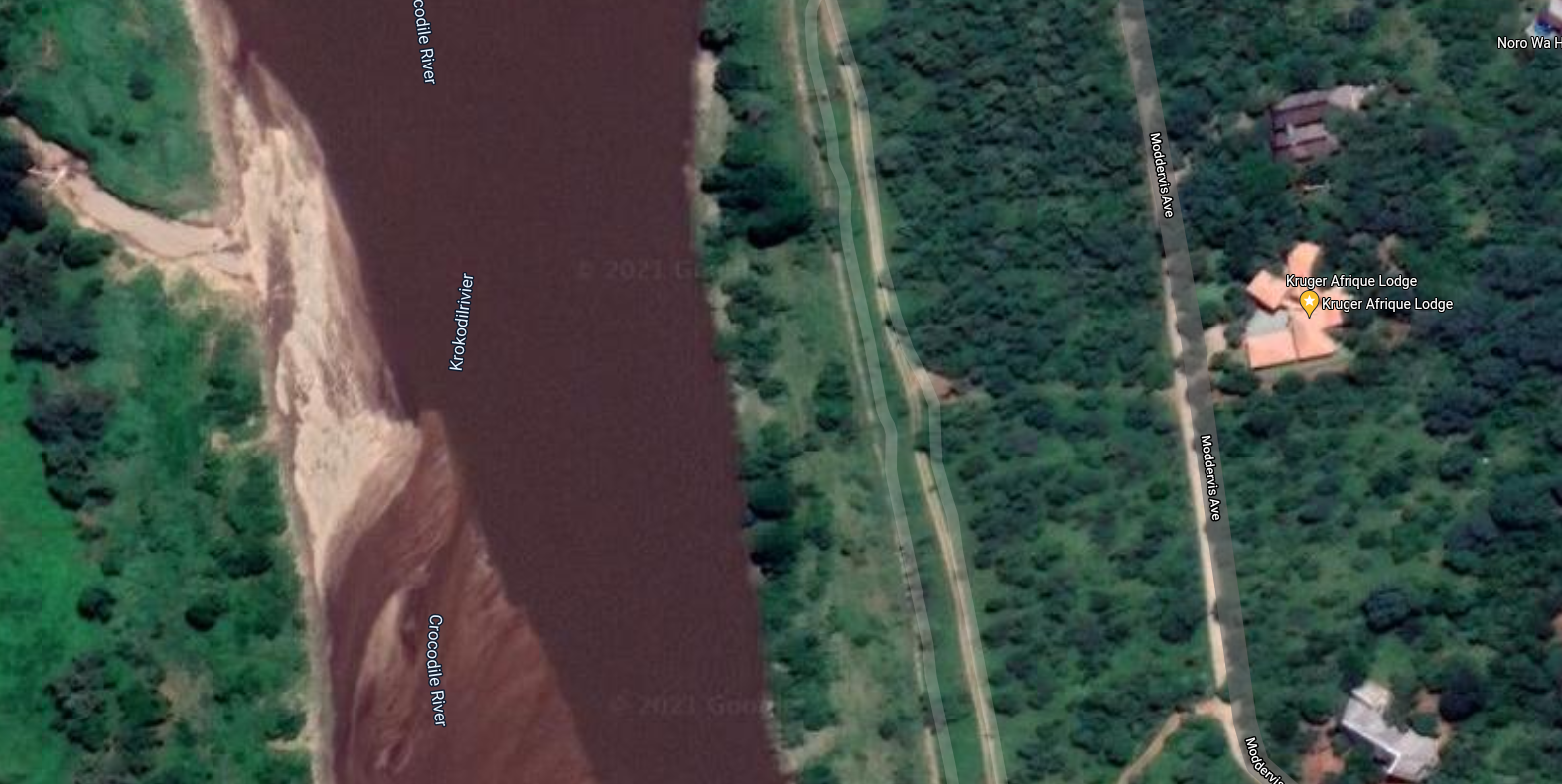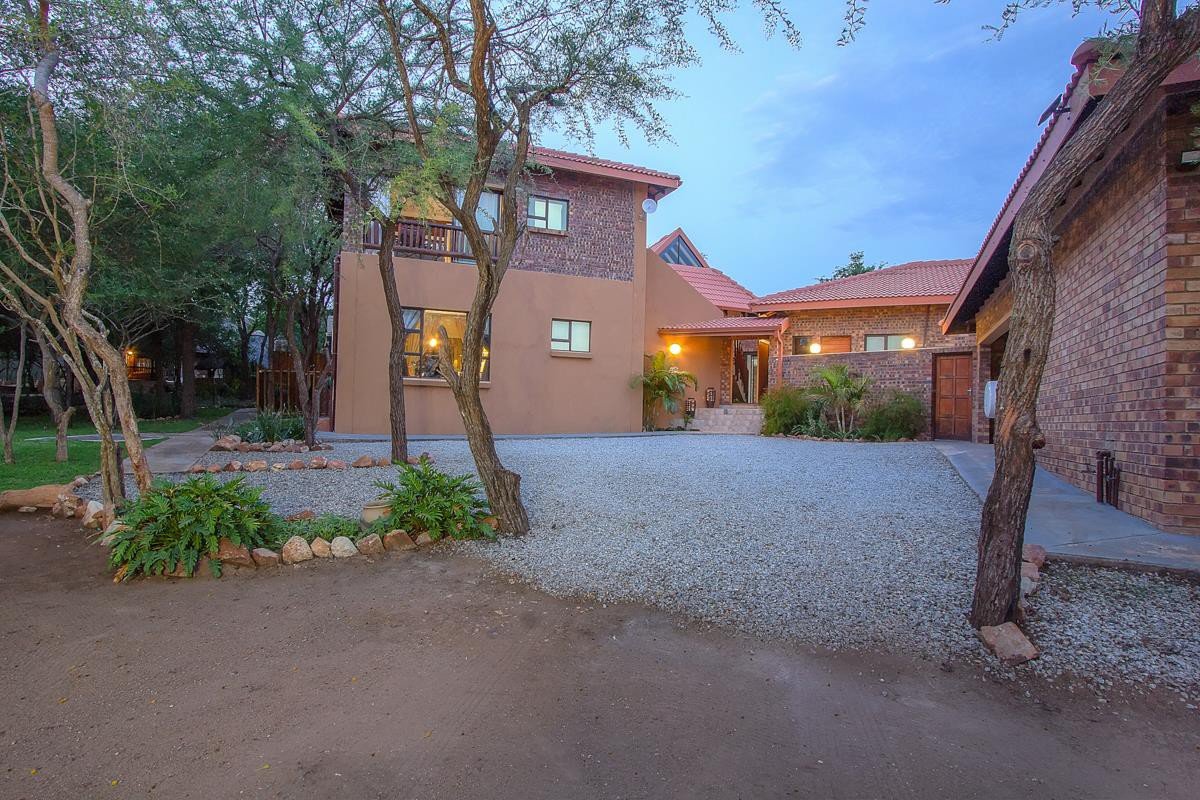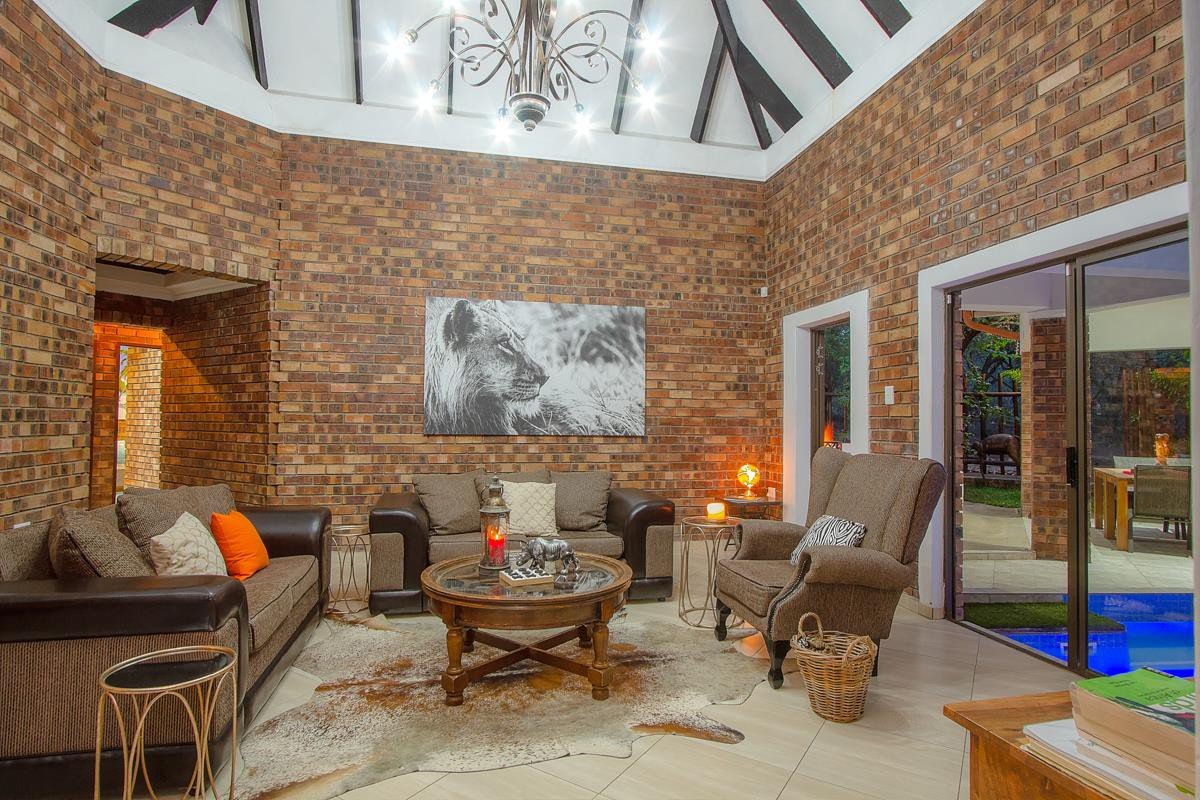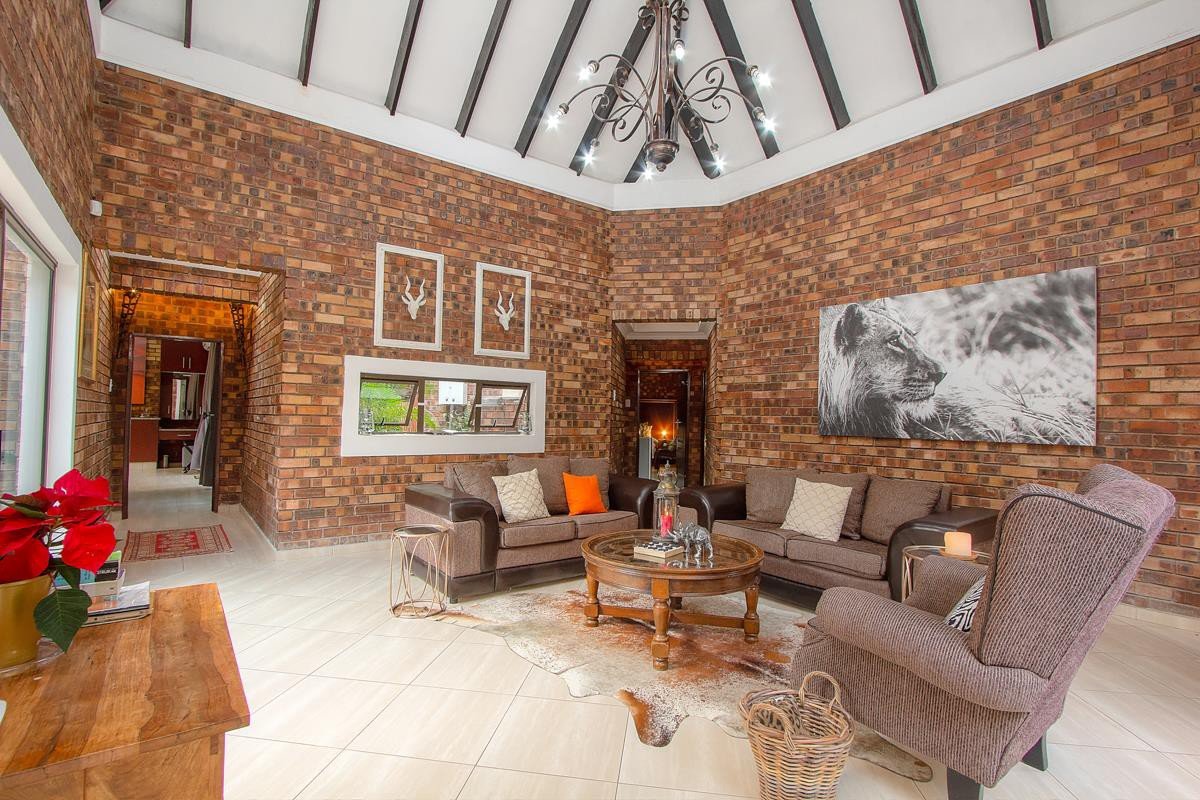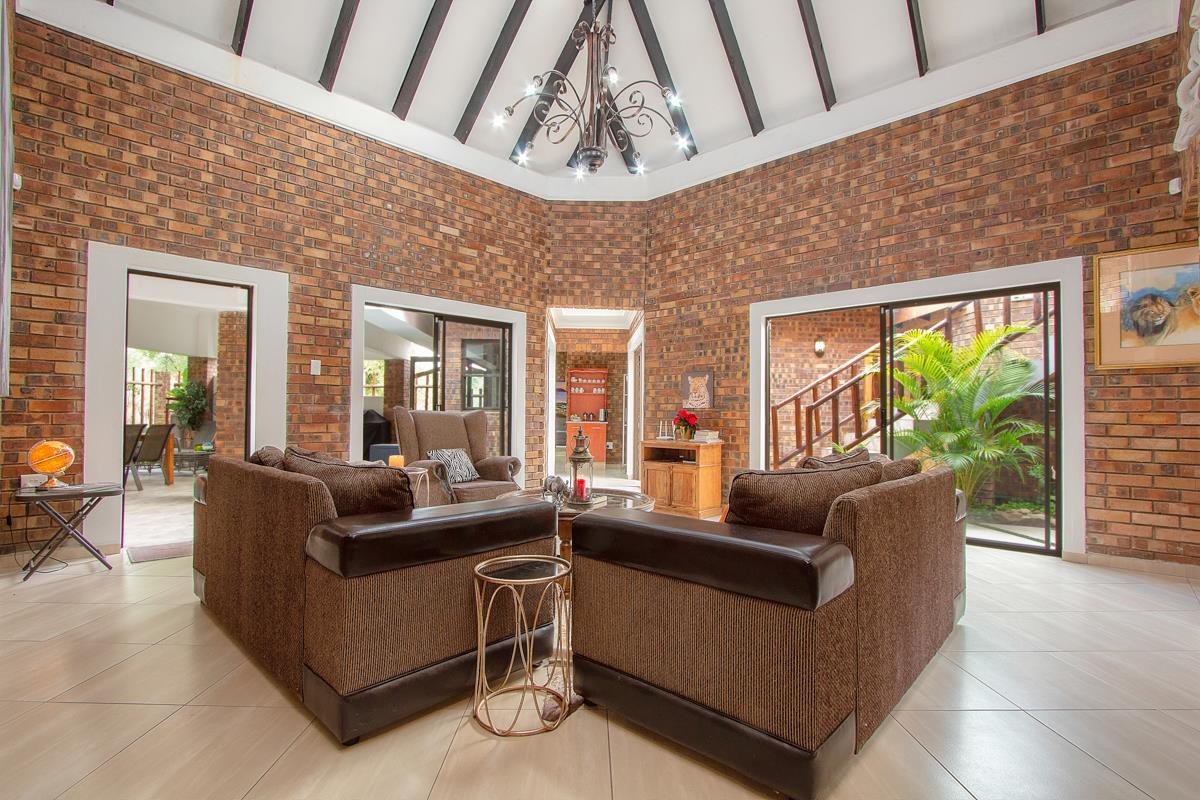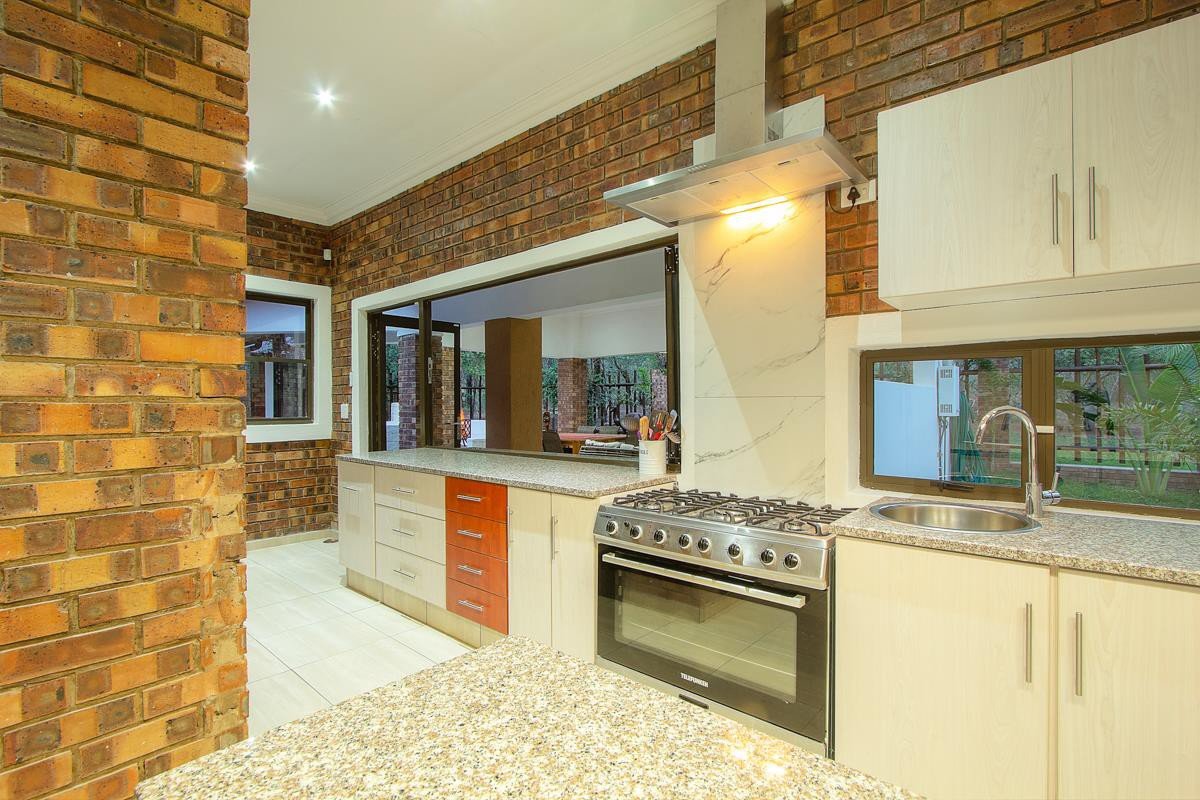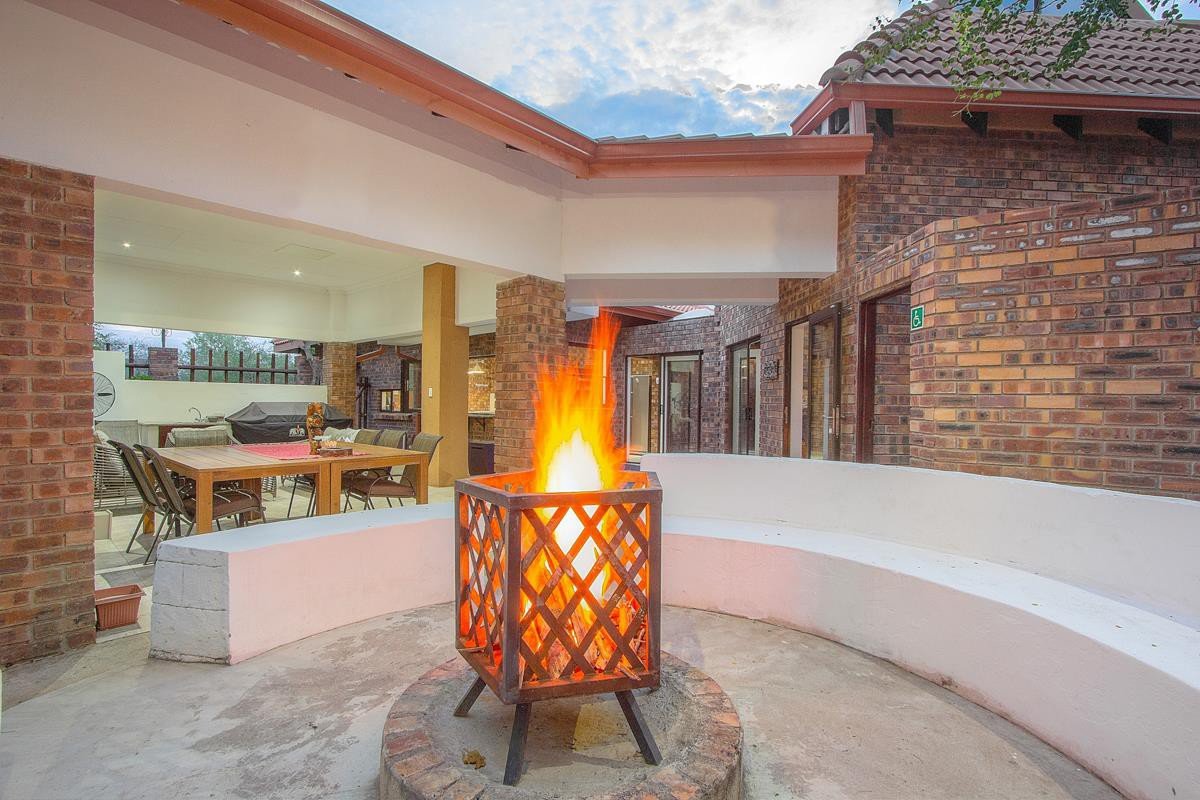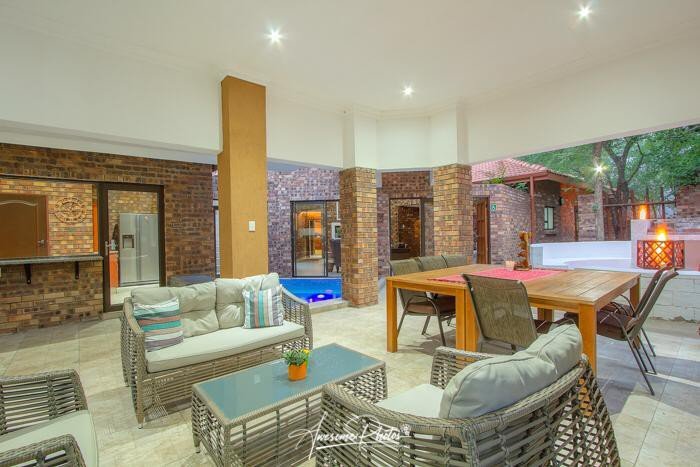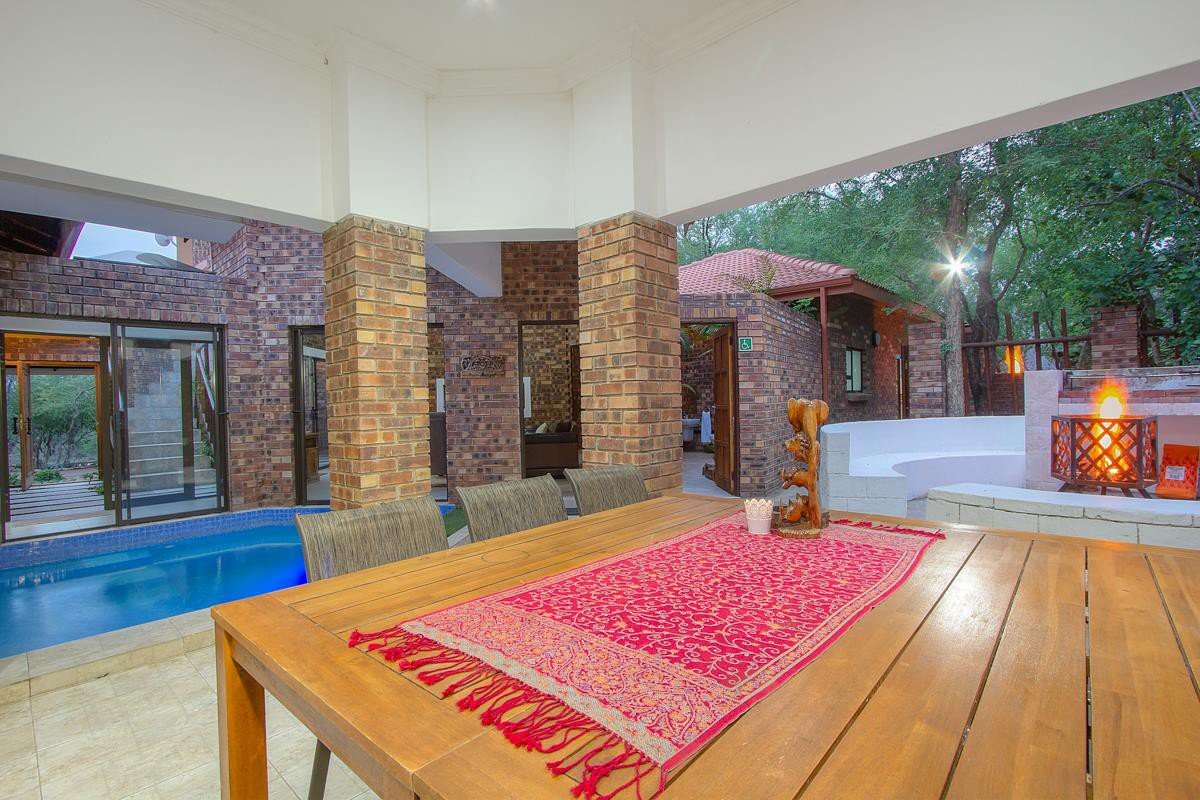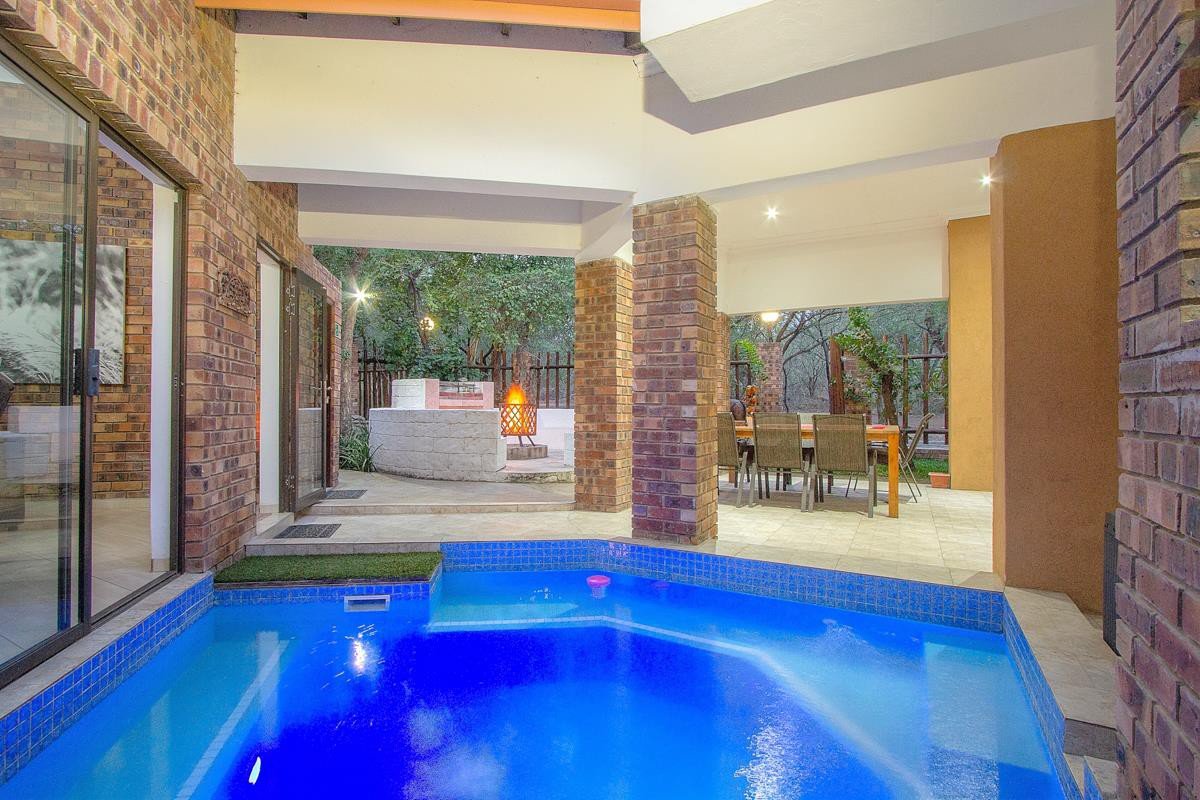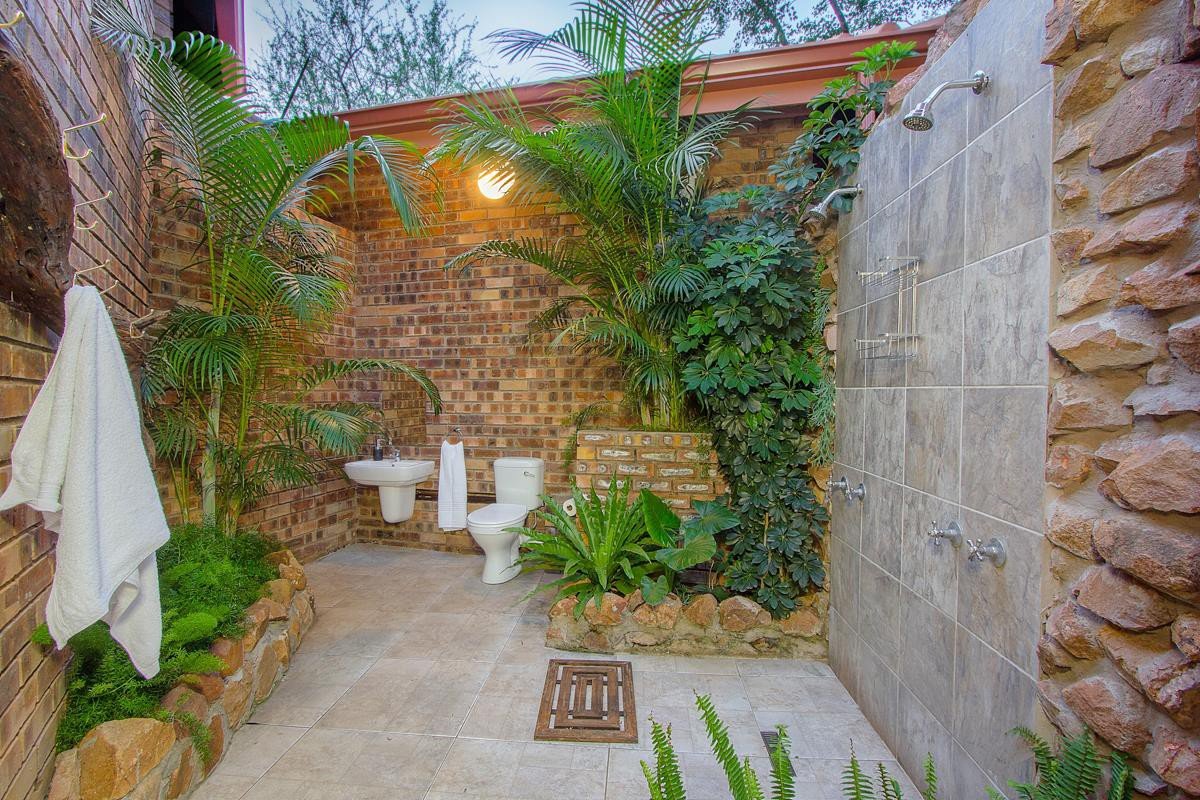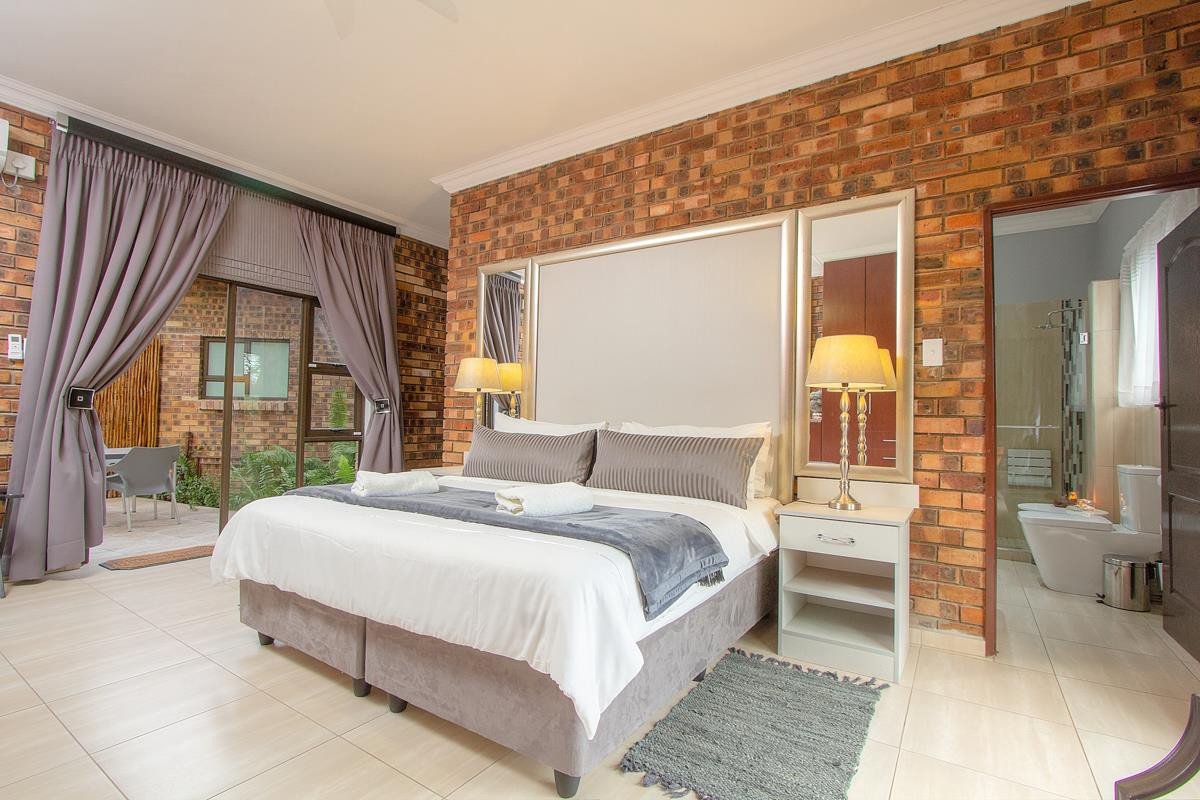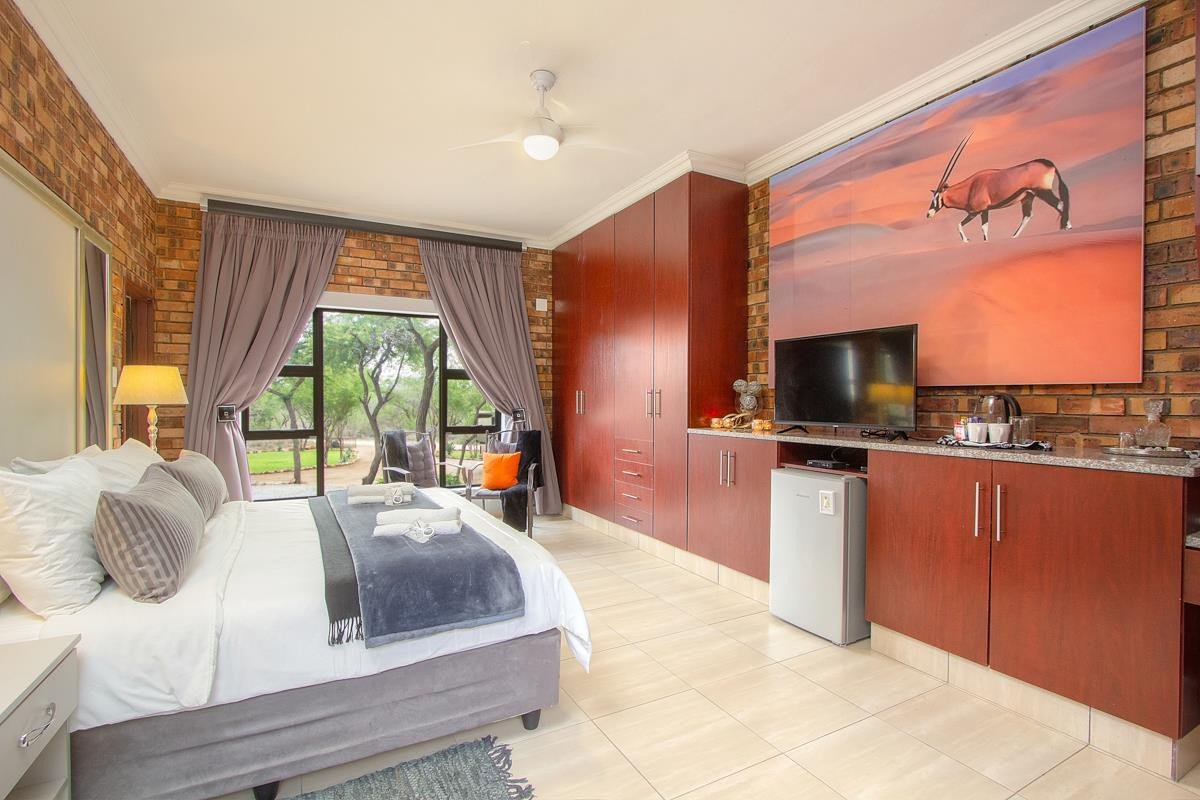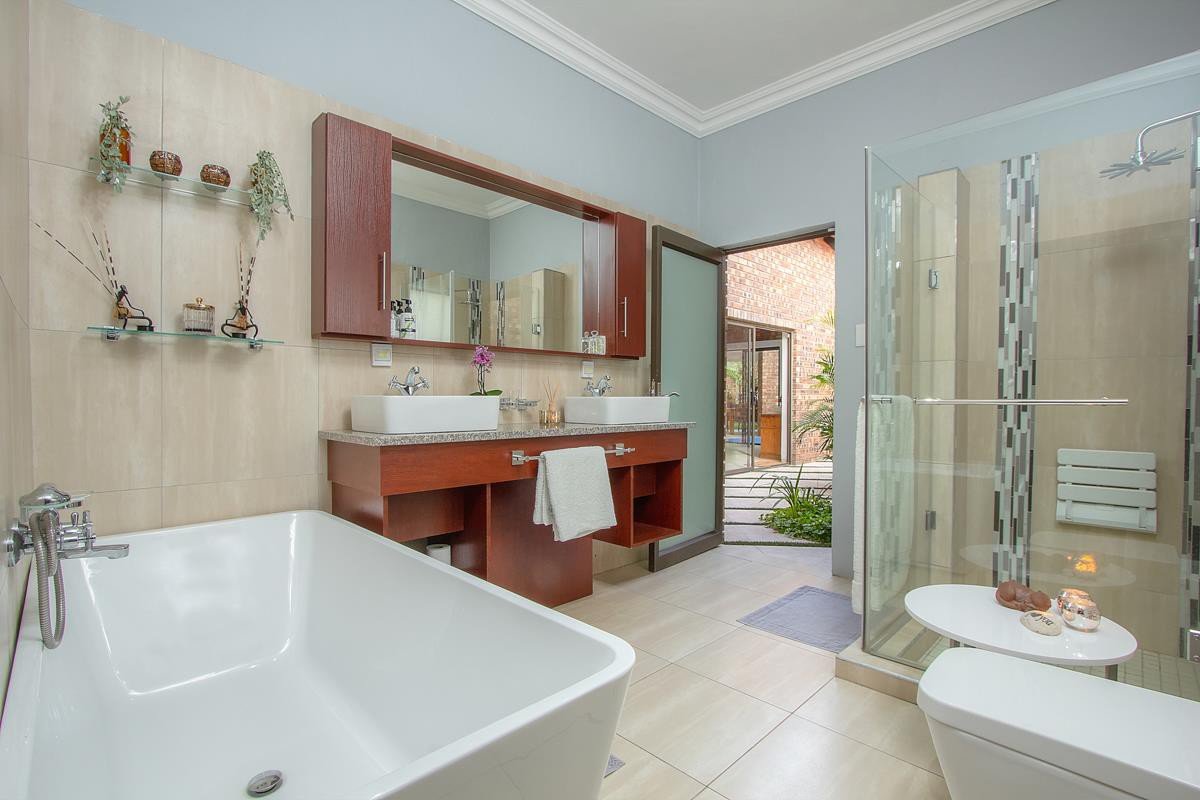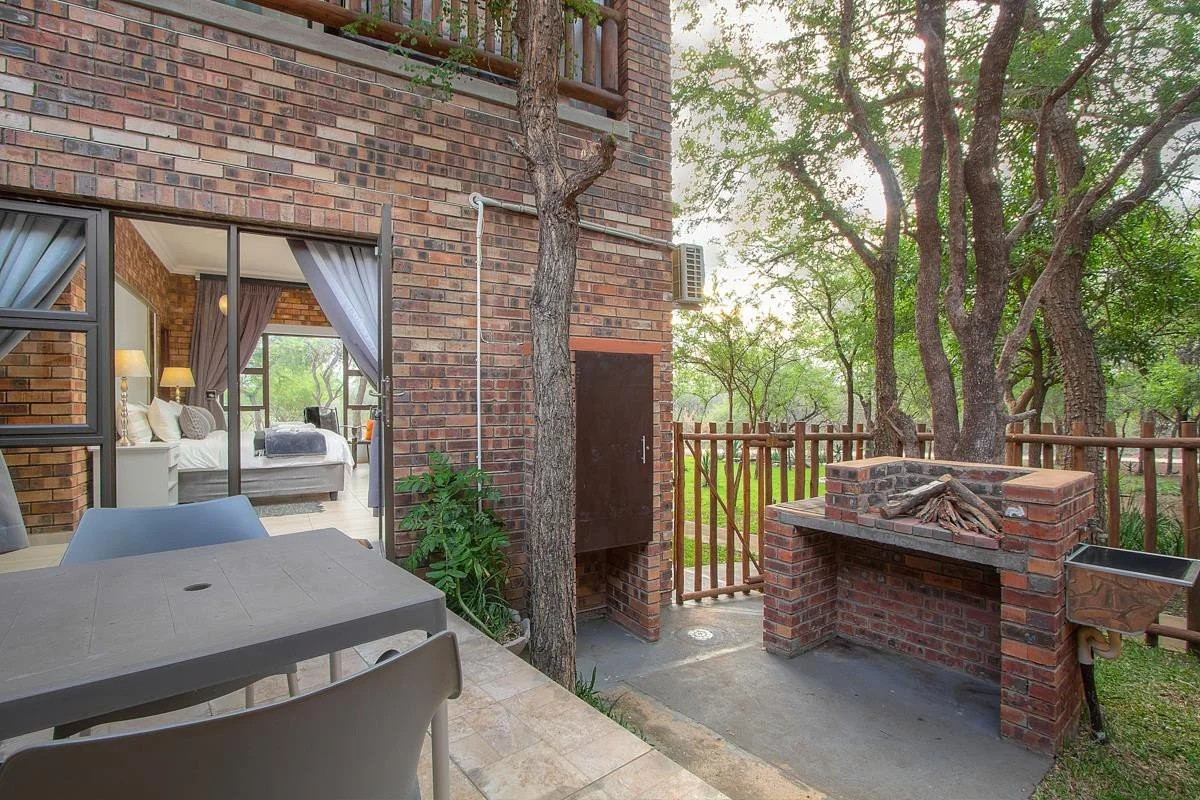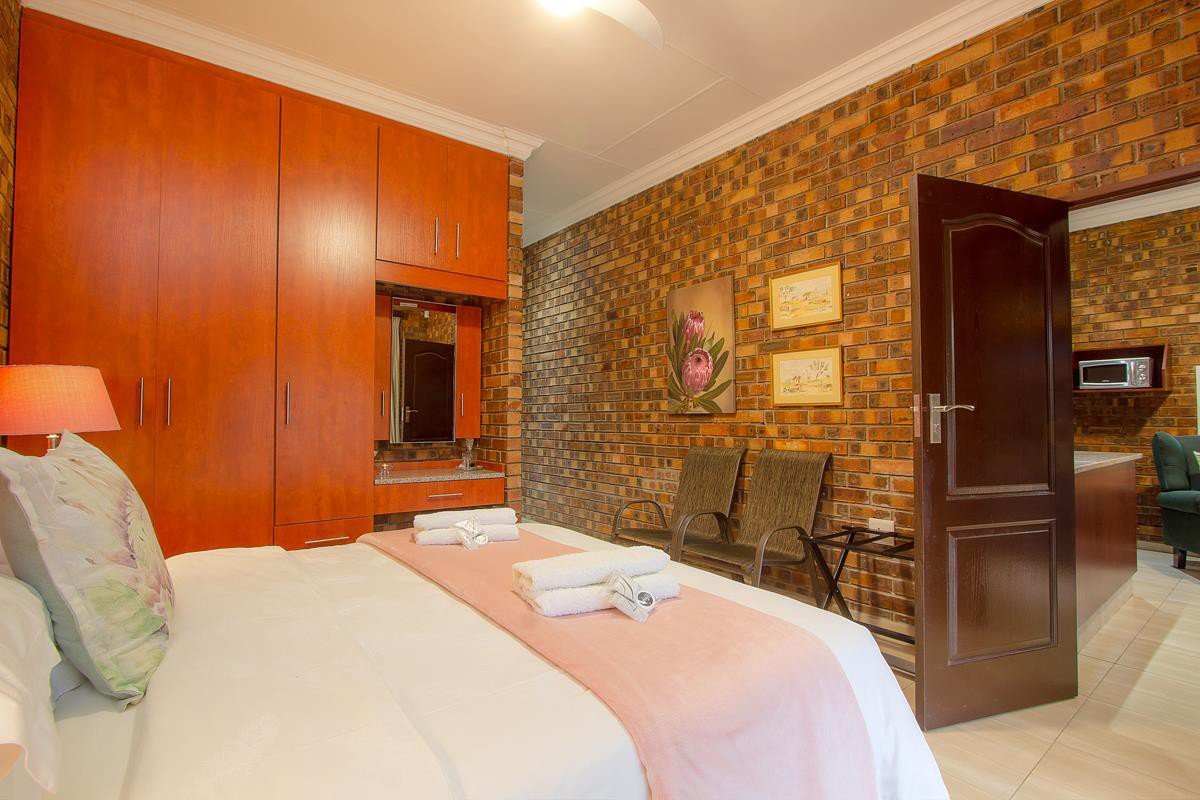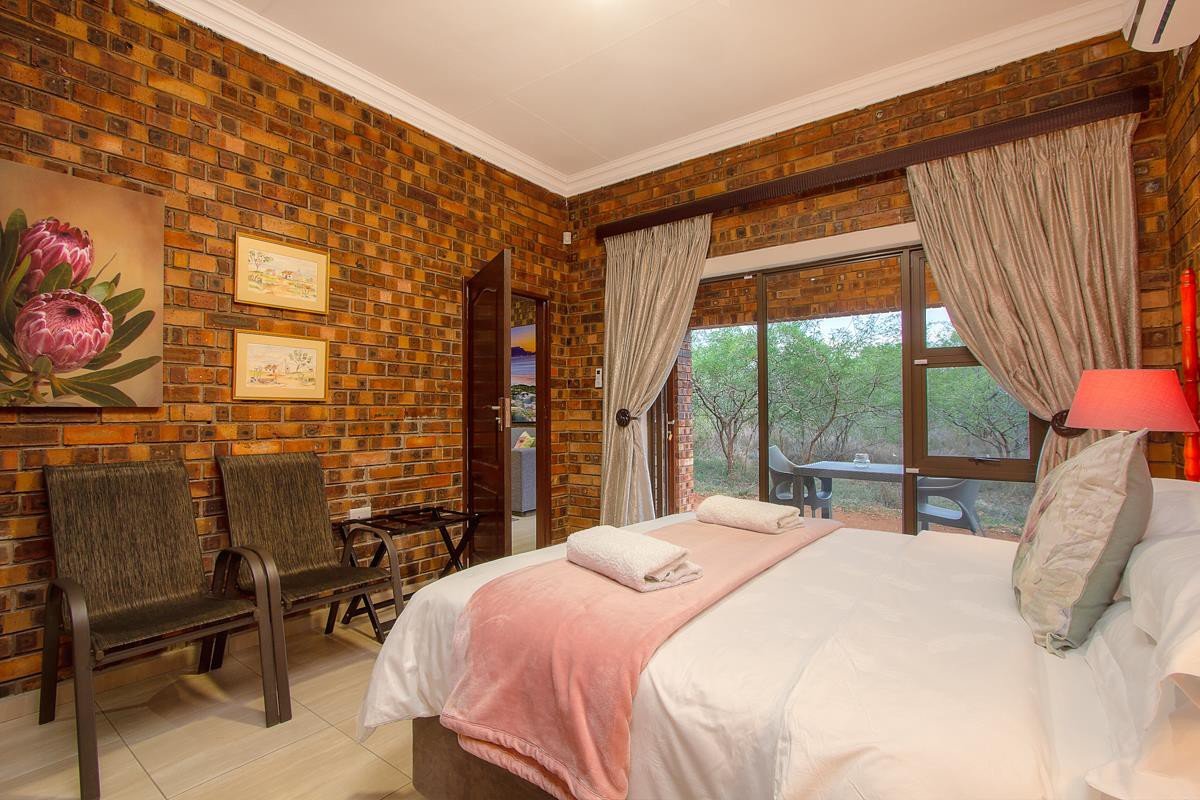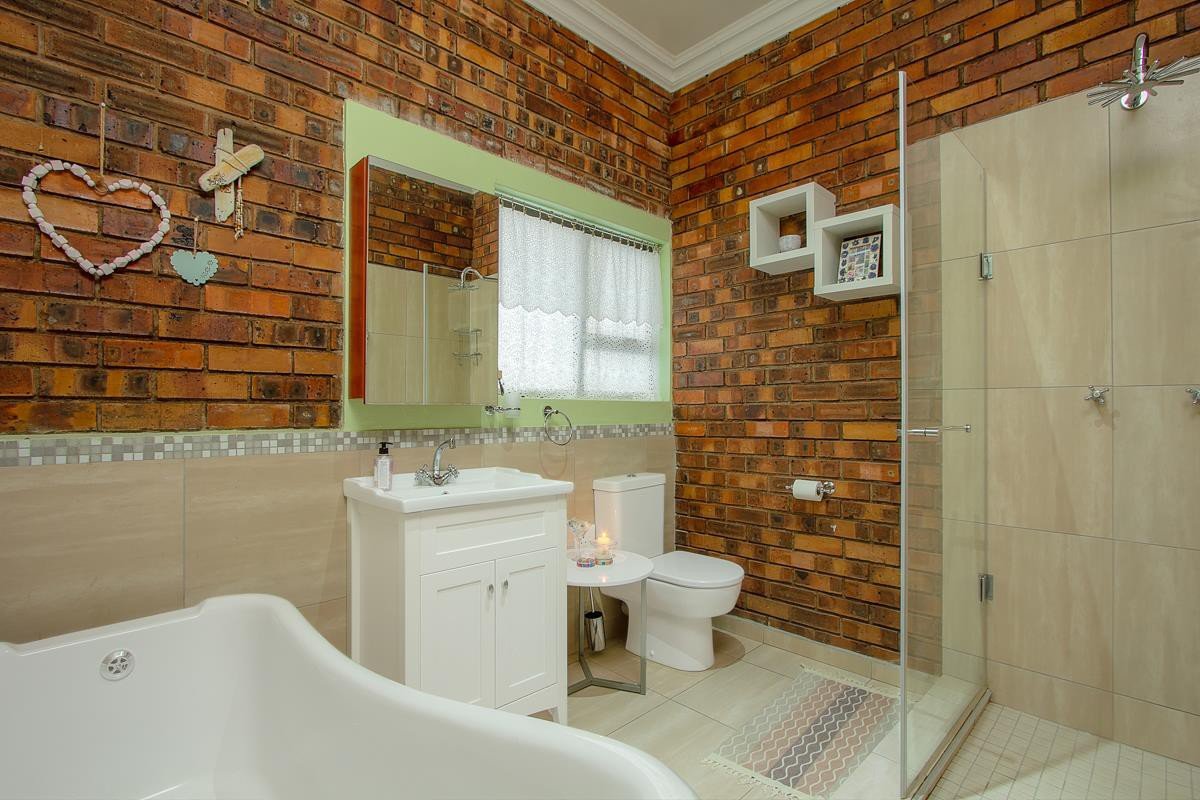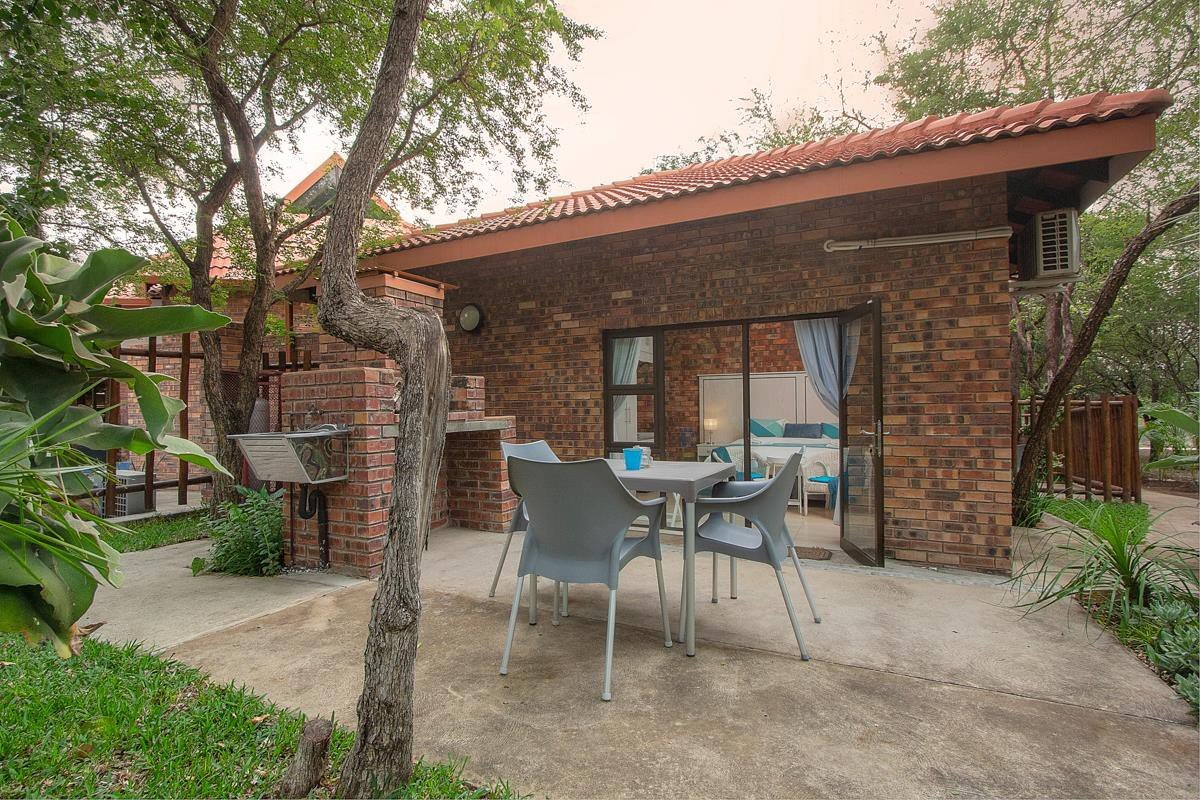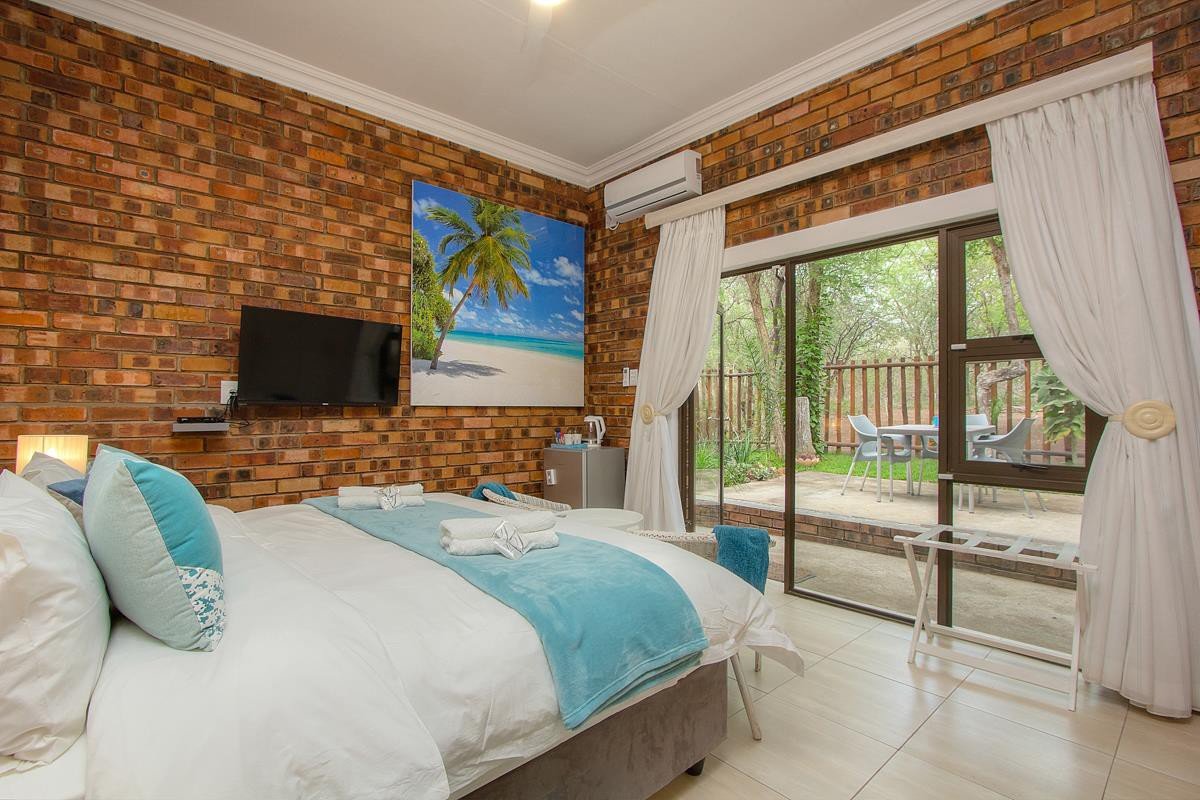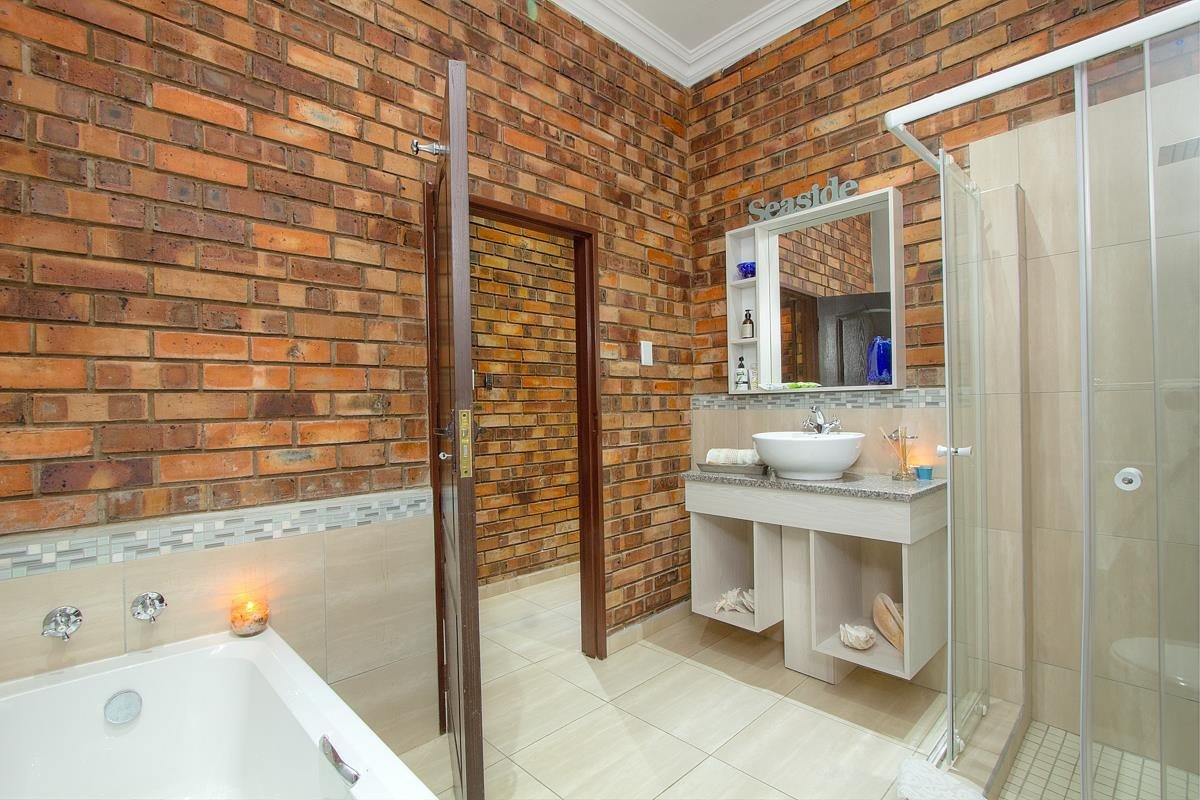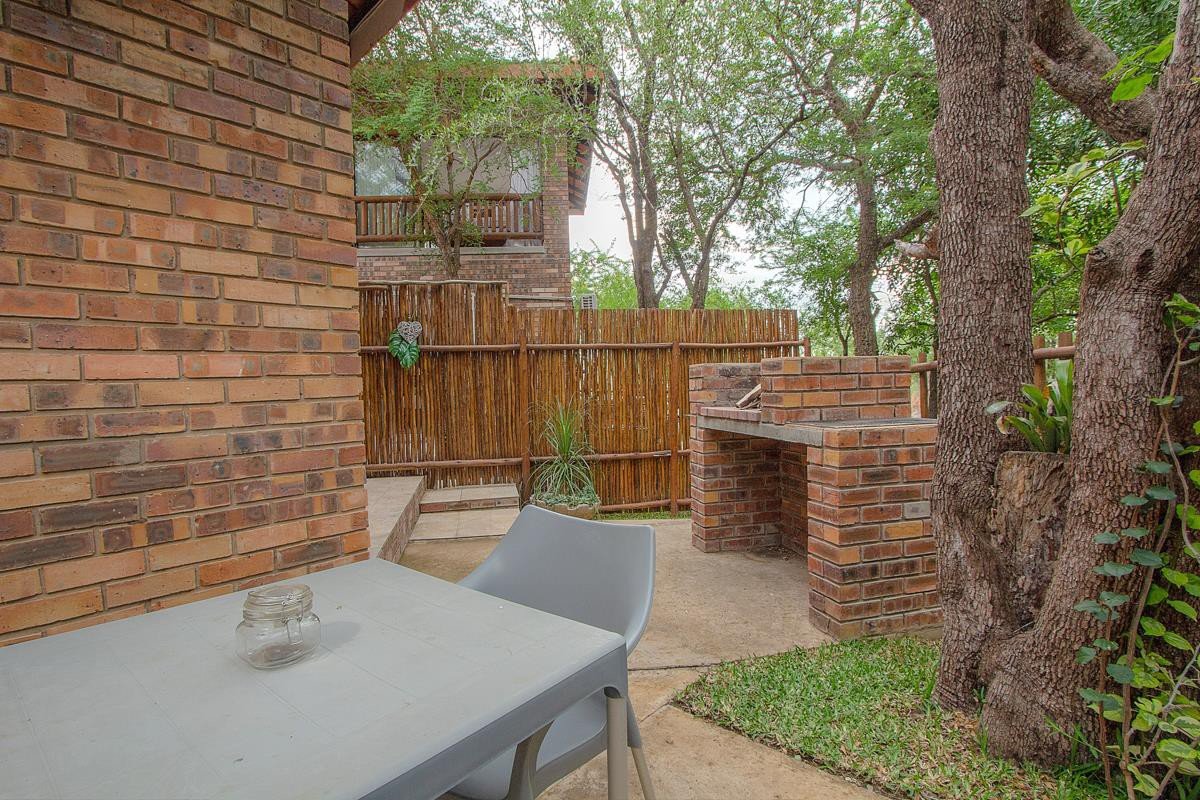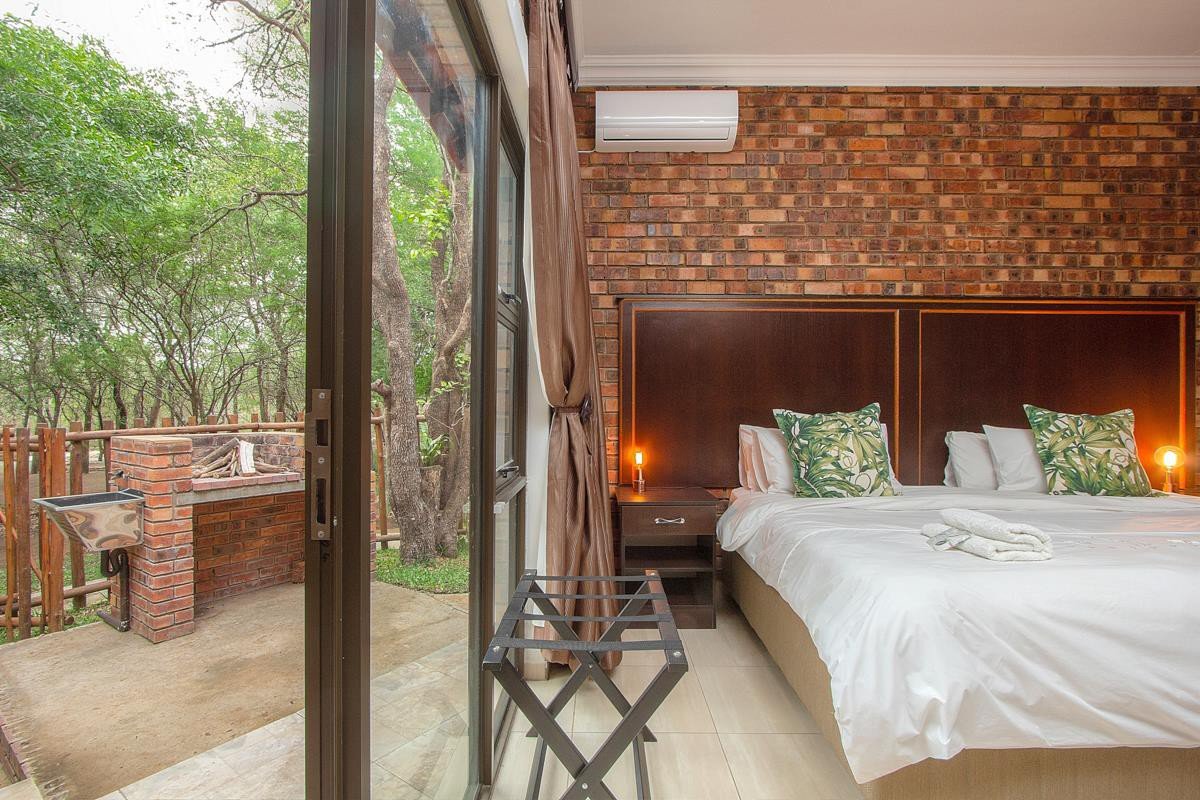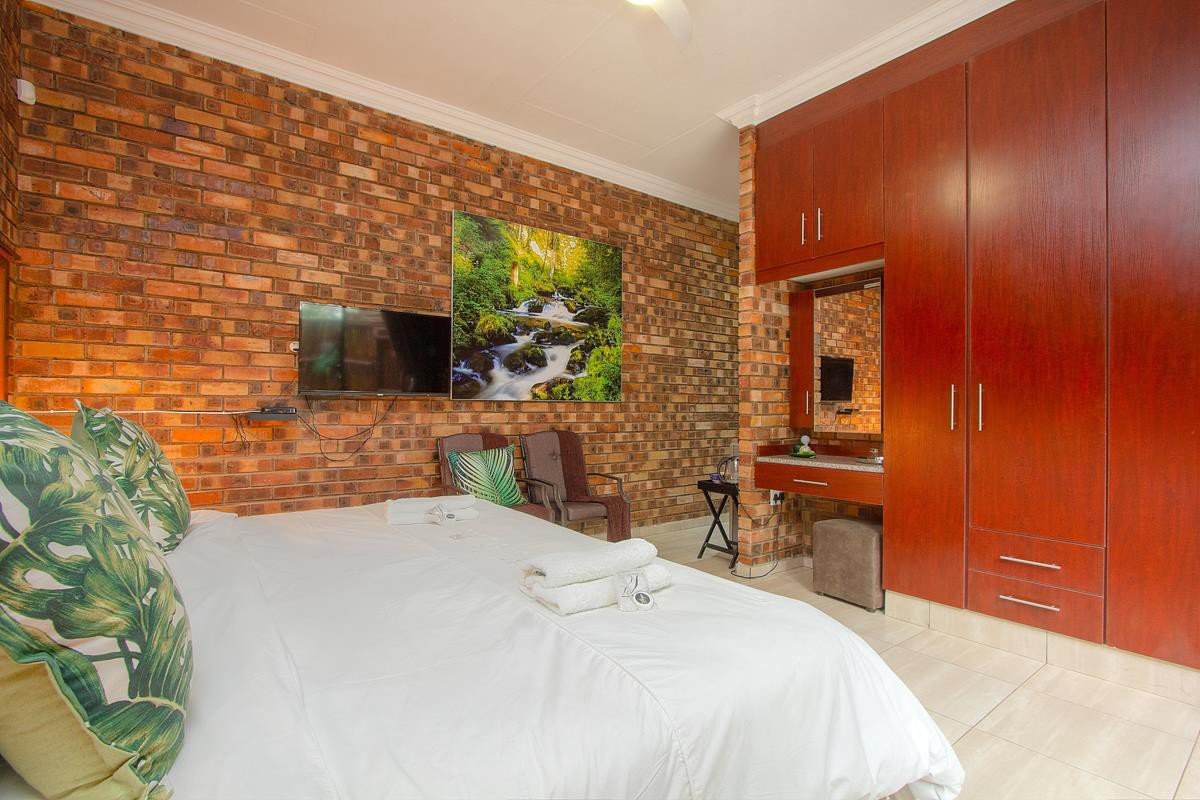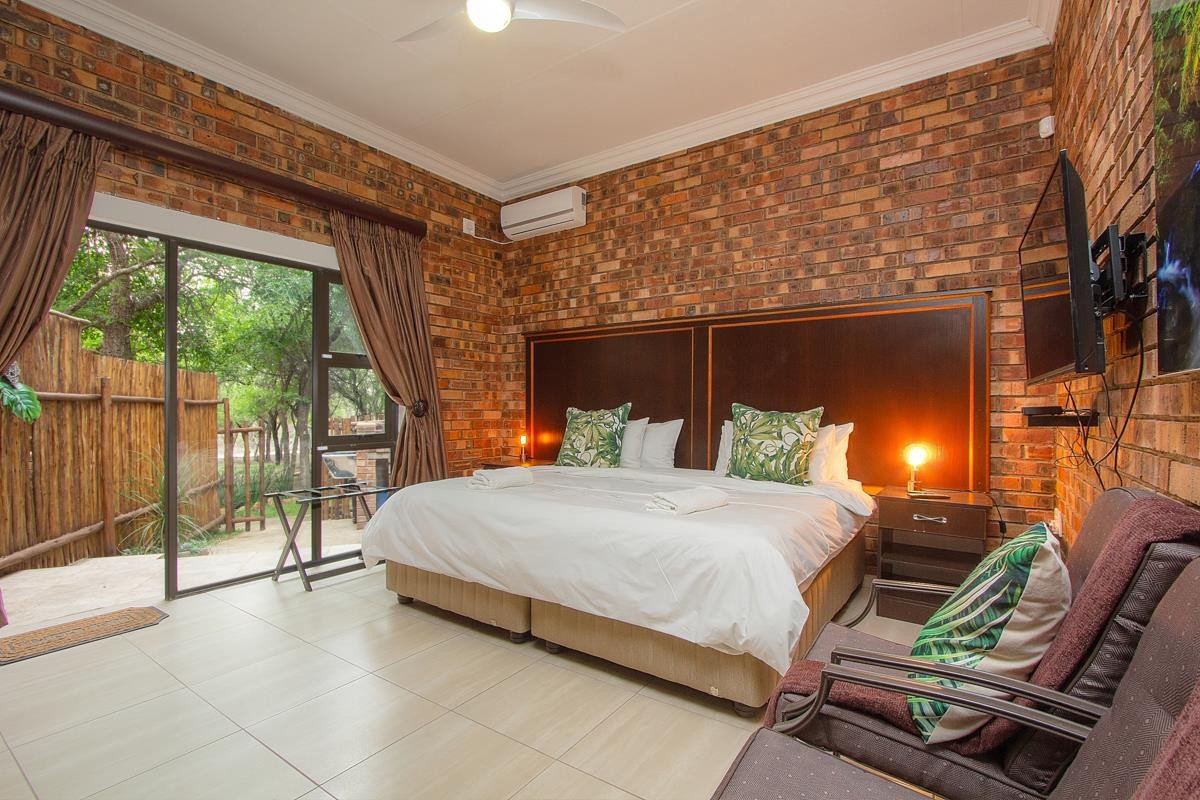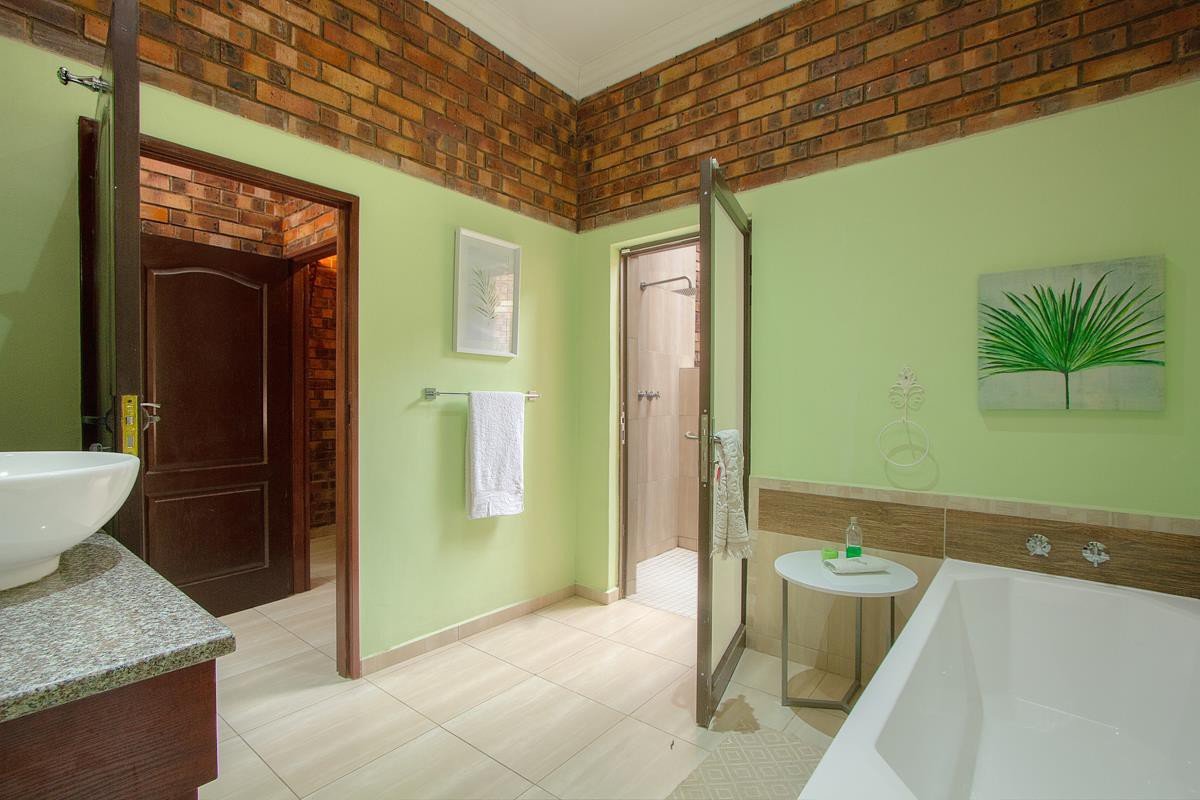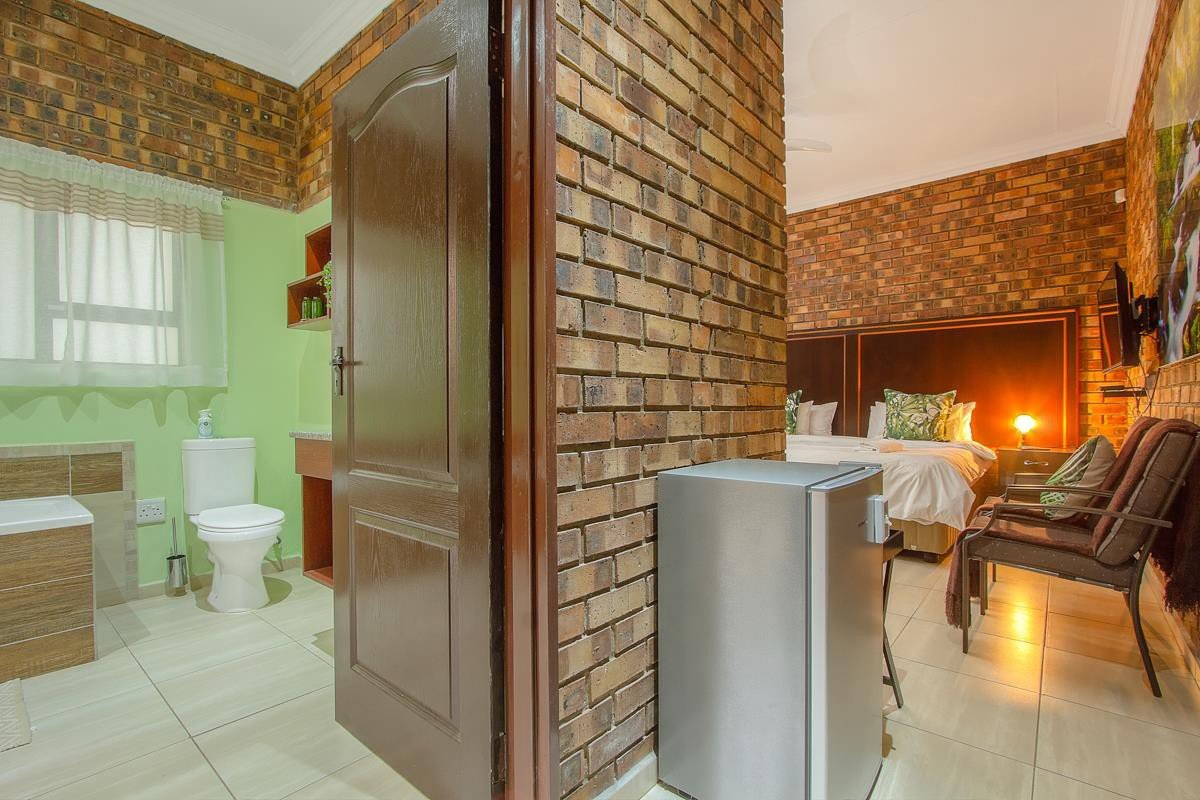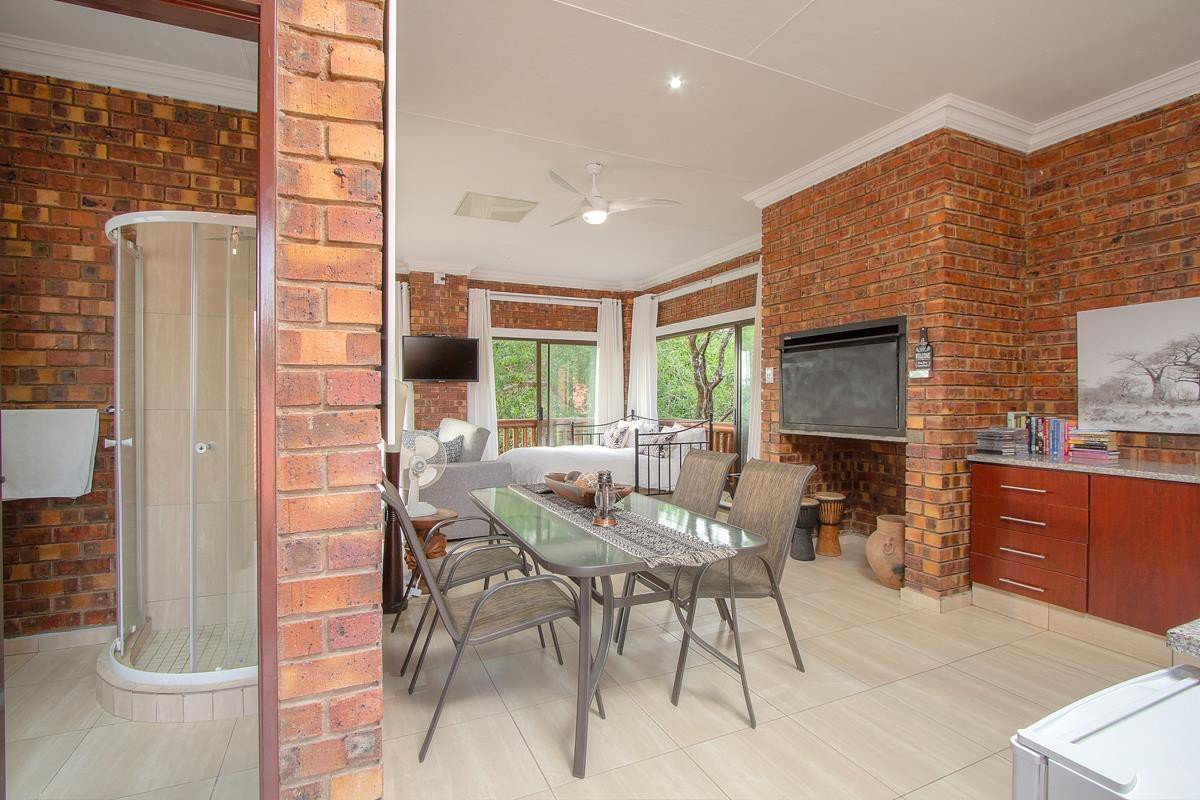We're Buying a House
Wait… what?
Can this really be true? Yes, indeed it is. Does this mean we’ll stop traveling? Of course not, but it does mean that our travel will change. And we couldn’t be more excited about this next chapter in our journey!
We love to travel and will continue to take extended trips all around the world. But one of the goals we set for ourselves when we started this journey was to look far and wide for a spot that really spoke to us. The bar has been high and we’ve gone several places that, on paper, looked like a perfect fit for us, but we rarely left a place wishing we could just stay. (Costa Rica did tempt us!)
Even before we arrived at our latest destination of Marloth Park, South Africa, we were both cautiously optimistic. We’d had high expectations and been disappointed before, but we’d also loved our time in Cape Town near the start of our nomadic journey. In fact, we considered settling more permanently in Cape Town after we’d been there a few weeks. We weren’t in Marloth long before we started having serious conversations about it!
Where We Will Live
Marloth Park is in the eastern part of South Africa, snug up against Kruger National Park. It’s a popular holiday destination for foreigners and South Africans alike, being a convenient residential area to rent a home or stay in a lodge while visiting the park. There are mountains nearby to the west as well as beaches and snorkeling just across the border in Mozambique. Although the town is relatively small, all of the basic necessities are available in the local shops. In the nearby border town of Komatipoort there’s a couple of large, modern, well-stocked grocery stores. And an easy ninety-minute drive away is the city of Nelspruit, which has all of the services and shopping you might need or want.
Even better, the house itself is located right next to the Crocodile River, which serves as the border to Kruger National Park. Our new home is just about as close as you can get to living in a national park. Directly in front of the house and directly behind it is all designated park land (wild bush). All the homes here are on spacious lots, mostly grown in with thick bush. A short trail to the west leads to two benches facing the Crocodile River where we can watch nature go about its business. Who wants to meet us there for sundowners?
Our new home, labeled as Kruger Afrique Lodge on the map.
We’ve seen elephants, crocodiles, hippos, lions, giraffe, water buck, impala, monitor lizards, countless birds, and many other creatures there. There is a fence to make it difficult for the most dangerous game to come into the town. Even so, lions and leopards are crafty and occasionally find their way through. In Marloth Park itself, however, there is a ton of wildlife that make their homes there: giraffe, zebra, kudu, bush buck, impala, warthogs, and more. All roam freely through the properties and abundant wild park land throughout the town. Some animals were frequent enough visitors to our rental home there that we named them.
Fabulous location, access to hiking and the ocean, wildlife wandering through the yard, safari game visible from a few steps out our front door, not to mention a great climate year-round, English is widely spoken, all modern conveniences are available, and a super low cost of living—yes, this checks all our boxes.
Top this off with the fact that we are getting an absolutely fantastic home. At six bedrooms, it’s far larger than we need. (Although our friends and family who plan to visit may disagree!) However, each of the rooms in the house has a separate, private entrance from the outside, as well as a small patio area with a grill. Most likely we will rent out some of the rooms when we’re not there. We can lock off the main house and essentially offer paying guests luxury hotel rooms. And when friends and family visit us, they function as guest rooms with (unlocked) full access to the house.
It has a large outdoor living space where we expect to spend most of our time. The upstairs bedroom of the house, with huge windows on three sides, will serve as our home gym. A well-configured kitchen will satisfy Carrie’s baking and cooking desires, as well as complement the braai and grilling area outside.
And did I mention that it includes all of the furnishings and contents?
Why Buy? And Why Now?
You may have heard us lament the pain we experienced while spending a month in Budapest and trying to get a roof leak fixed in our stateside townhouse. This was one of the factors that prompted us to sell and live the “home-free” lifestyle. This experience weighed heavily on us as we considered whether or not to buy another home. In fact, we’d often said that we suspected we might never buy another home—”settling down” would mean cycling through the same three or four locations every year.
Any nomad will tell you, as much as we love it, the home-free lifestyle does have its share of inconveniences and downright frustrations. For the most part, we endure these with a smile in exchange for the opportunity it affords us to travel. Certainly, neither of us has any regrets! But these things have begun to wear on us, little by little. However, at least for me, Covid has been the real clincher that I wanted to slow down.
The frequent and unpredictable changes in policy that we’ve read about and experienced for ourselves has simply taken a noticeable chunk of the fun out of the lifestyle and replaced it with stress. It’s also seriously limited the destinations we can travel to. We’ve rescheduled Mongolia and Chile multiple times. We spent six months in the US last year and four months in Mexico. Although we enjoyed our times in these places, these weren’t the exotic destinations we had in mind when we set off on this adventure.
We’ve watch the rules change weekly, sometimes daily, and occasionally hourly—even landing in Latvia and finding out that the “official” rules they published weren’t the same rules that they enforced at immigration. Even if you do everything perfectly, it’s still easy to end up in a bad situation. We’ve read several accounts of travelers who were forced into unexpected quarantine with no notice—literally a police officer shows up at your door and tells you to pack up, you’re going to a hotel of their choosing for two weeks, at your expense—because someone on the plane they arrived on three days earlier had tested positive.
Malta was a big eye-opener for us, as well. Over 90% of the population is vaccinated and they only allowed fully vaccinated tourists to come. The hospitalization and case rates were relatively low. Despite all of this, they still had reduced capacity for gyms, bars, restaurants, etc; mask wearing was mandatory everywhere indoors; and strict Covid protocols were still in place throughout the island. We’re not anti-mask fanatics, we’re fully vaccinated, and we appreciate the dangers that Covid can present. But we started wondering, if Malta is doing so well but still hasn’t lifted restrictions, what hope is there of travel returning to anything resembling “normal?”
Weeks ago we had made an informal decision that we were going to either spend a lot more time in the US and/or limit our destinations to the few countries that had reliably been traveler-friendly during Covid—and there aren’t many of these. This would also mean spending much longer periods of time in each destination. But the reliable options for traveling during Covid weren’t the kinds of places that got us as excited when we first embarked on this lifestyle.
Then we came to Marloth Park. It fit us so well that we both kept saying that if we had to spend longer periods in one place, we would absolutely love to do it here. We considered what it would mean to do that and initially thought about doing longer-term rentals. However, we quickly ruled that out, as few rental properties have any kind of backup power system in place. Because of South Africa’s propensity for rolling blackouts (which they call “load shedding”), it was important to us to have a backup source of electricity. They sometimes go months without any power outages, but then will have months during which you might lose power for six or more hours every day. It’s one thing to suck it up and live with it for a few weeks or even a month; it’s something else entirely to go on like that for months. Yes, I know: first world problems. We will confess to a weakness for reliable and constant electricity!
So we decided to meet with a real estate agent to see what the market looked like in Marloth. We really didn’t expect to buy, as we still harbored reservations about owning a property when we knew we would be gone for at least a few months of the year.
But when we saw the house we’re buying, those concerns began to wane. One of the “bedrooms” is actually a small apartment attached to the garage that serves as a staff apartment for the woman who keeps the house and manages the on-site guests. By US standards, her salary is modest (and includes free rent, of course) and we’re comfortable with it, especially with potential rental income we can generate when we’re not there. Having someone living on the property to deal with anything that might come up when we’re not there is a big plus. Fortunately, she’s also excited that we want to keep her on and seems eager to adapt to the changes we’ll be making to her job.
What Now?
Home-buying is a slow process in South Africa, as most bureaucratic processes on the continent are. We’re told it takes about three to four months from signing the contract to closing the sale. This works out for us because we already have Panama and Antarctica booked through the end of March, then there are weddings in the US in both April and May we want to attend. Most likely the closing will happen remotely in April or so and we’ll arrive in June to begin making it into a home.
We don’t really see this as us “settling down” but more of us “evolving” our travel lifestyle. Initially at least, we don’t plan to pursue residency in South Africa and will simply leverage their 90-day tourist visa when we’re there. We can’t imagine being somewhere for ninety days and not wanting to take at least a short trip somewhere during that time! Most likely we will spend a month or two (or three) there at a time, intermixed with extended visits to new destinations.
As for the question, But Where Will You Live?—we don’t see the answer changing. Wherever we are, that’s where we live.
